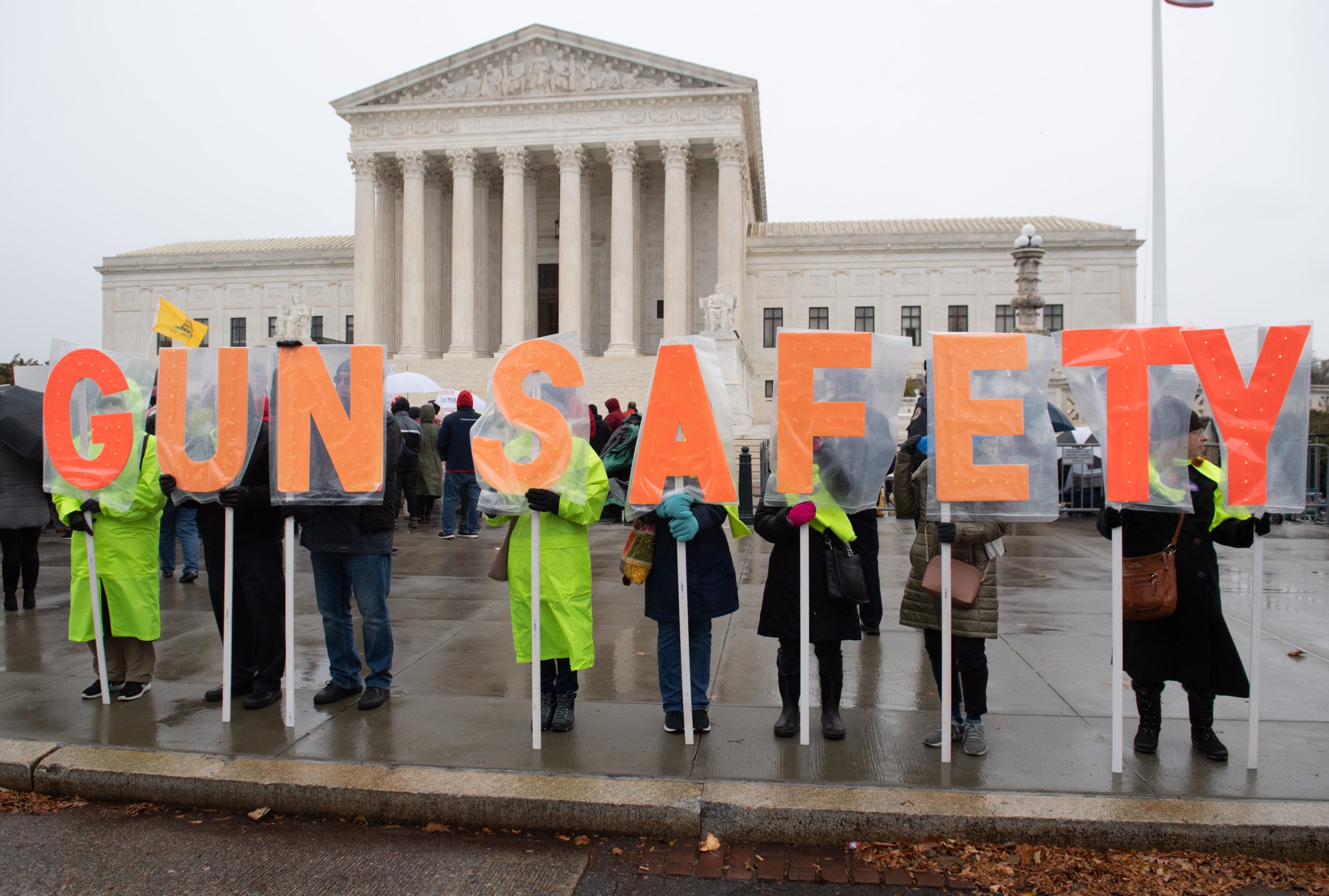US top court avoids ruling on closely watched gun rights case
Gun control advocates demostrate outside the US Supreme Court (SAUL LOEB)
Washington (AFP) – The US Supreme Court on Monday turned down the opportunity to rule on a constitutionally important gun rights case, deciding that a challenge to New York City’s firearms laws — the first such case before them in nearly a decade — was moot and did not require a ruling.
Gun rights advocates had hoped that the top court, with its now clearly conservative tilt, would issue a ruling diluting the ability of states and cities to strictly regulate gun ownership.
But in a six to three decision, the high court said New York’s move last June to end its ban on carrying licensed firearms in and out of the city to second homes and shooting ranges removed the basis of the plaintiffs’ complaint.
“Petitioners’ claim for declaratory and injunctive relief with respect to the city’s old rule is therefore moot,” the court ruled
Backed by the National Rifle Association (NRA), the powerful gun lobby, several New York gun owners had sued the city over the original restrictions, saying they were blocked from participating in shooting contests and carrying their licensed weapons to their rural homes.
The suit said New York’s restrictions violated the Second Amendment to the US Constitution, which enshrines “the right of the people to keep and bear arms.”
Lower courts upheld the city’s claim it had the right to regulate firearms.
But the city appeared to be in a legally weak position ever since the landmark 2008 “District of Columbia v. Heller” ruling, in which the Supreme Court said a city or state could not ban people from owning handguns for personal protection or other needs.
After that win, gun rights activists have sought to challenge all local regulation on gun ownership.
In Monday’s decision here was an indication that at least four conservative members of the court were eager to take on another politically explosive case that challenges gun regulation.
Justice Samuel Alito, writing for himself and two other dissenters, Clarence Thomas and Neil Gorsuch, cited the precedent of the “Heller” ruling to argue that not all the issues of the case had been dealt with.
Alito made clear he believed New York had violated the plaintiff’s Second Amendment rights.
A fourth conservative, Brett Kavanaugh, said he agreed that the case was moot but said it raised the point that cities and states were not abiding by the “Heller” ruling.
“The court should address that issue soon, perhaps in one of the several Second Amendment cases with petitions for certiorari pending before the court,” he wrote.
Disclaimer: Validity of the above story is for 7 Days from original date of publishing. Source: AFP.


